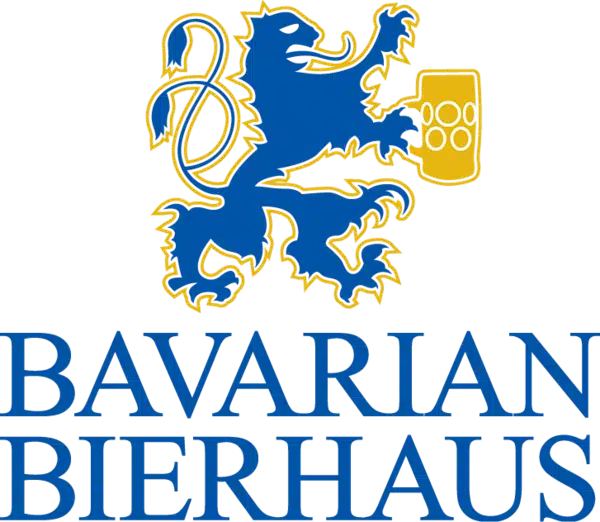This site uses cookies for analytics and to improve your experience. By clicking Accept, you consent to our use of cookies. Learn more in our privacy policy.
Located in the heart of Nashville, Tennessee, Bavarian Bierhaus is a sprawling 17,000-square-foot German beer hall known for its festive atmosphere, traditional cuisine, and authentic German brews. The concept was brought to life by a group of passionate founders who were new to the restaurant industry and shared a deep love for German culture. They had a vision to create a lively Oktoberfest experience year-round. With seating for nearly 1,000 guests, the Bierhaus quickly became a go-to spot for both locals and tourists. Chief Operating Officer Joe McCarrol, who joined early on to help open and train the initial team, soon realized that as business picked up, manual Excel spreadsheets were holding back operational efficiencies. To continue delivering great service and scale successfully, Bavarian Bierhaus needed a smarter way to manage tasks and train its growing team.
As Bavarian Bierhaus grew in size and popularity, managing daily operations with outdated tools became increasingly unsustainable. Relying on printed Excel spreadsheets detailing daily tasks created gaps in communication, hindered consistency, and made it difficult to train new managers effectively, especially as the restaurant experienced high turnover. Leadership recognized the restaurant needed a more streamlined system. Their key challenges included:
To address their growing pains, Bavarian Bierhaus turned to Restaurant365 Task Management.
When we first opened, we were definitely that old-school restaurant that had an Excel spreadsheet, and we would just print it off the paper every day and put it on a clipboard on the wall. What we noticed was that we weren’t keeping a great track of our task lists. Some days, it wasn’t filled out at all. And other days, it never even got printed.
Joe McCarrol, Chief Operating Offier
Bavarian Bierhaus
R365 Task Management revolutionized Bavarian Bierhaus’s back-of-house operations, replacing outdated spreadsheets with a centralized, cloud-based system. Within hours of implementing the tool, the team transitioned all of their daily tasks from Excel to Restaurant 365, organizing tasks by shift and assigning them to specific team members. The intuitive interface allowed managers to categorize and schedule tasks into categories such as opening, midday, and closing duties, with specific tasks scheduled for certain days to track progress in real time, reducing confusion and ensuring tasks were completed consistently. This new level of structure brought clarity to the back-of-house operations, helped onboard new managers more efficiently, and fostered stronger collaboration across the management team.
Now it’s really easy to go in and delegate who does what, when, where, and why. There’s not a question about, ‘When do we turn the dinner lights on?’ I mean, it seems really silly, but we saved a lot of time and stress of not having to pick up the phone and say, ‘Hey, the dinner lights are still off.’
Joe McCarrol, Chief Operating Offier
Bavarian Bierhaus
Since implementing Restaurant365 Task Management, Bavarian Bierhaus has seen a dramatic improvement in operational efficiency. Managers now save up to an hour each day — totaling nearly 30 hours a month — which they can reinvest into higher-impact work like team development and guest service. Daily tasks are completed more consistently, and new managers adapt faster thanks to clear, structured checklists. The platform has also improved communication and accountability across the management team, eliminating confusion around responsibilities and reducing the need for constant follow-ups.
It gave me peace of mind to know that things I’m asking to get done every day are getting done. It’s really nice to keep laser-focused on what needs to get done that day.
Joe McCarrol, Chief Operating Offier
Bavarian Bierhaus
Restaurant365 Task Management has transformed day-to-day operations at Bavarian Bierhaus by streamlining task execution, improving communication, and giving managers time back in their day. What was once a time-consuming, inconsistent process is now a well-organized, trackable system that supports both new and seasoned managers alike. As the team looks ahead, they’re confident that expanding use of the platform will unlock even more savings and operational improvements.
I think it would really make a big difference for the whole team. Profitability and efficiency wise, if I had it for my whole staff, I guarantee it would save me a good three to five percent on labor, which is huge.
Joe McCarrol, Chief Operating Offier
Bavarian Bierhaus

7 hours saved per week
on task management
30 hours of manager time saved monthly
allowing focus on higher-impact responsibilities
3-5% projected labor savings
with adoption of R365
Discover how you can start achieving savings like these for your business
Restaurant365 brings together accounting, operations, scheduling, and more in a flexible platform—empowering restaurants to choose the solutions they need and scale with confidence.